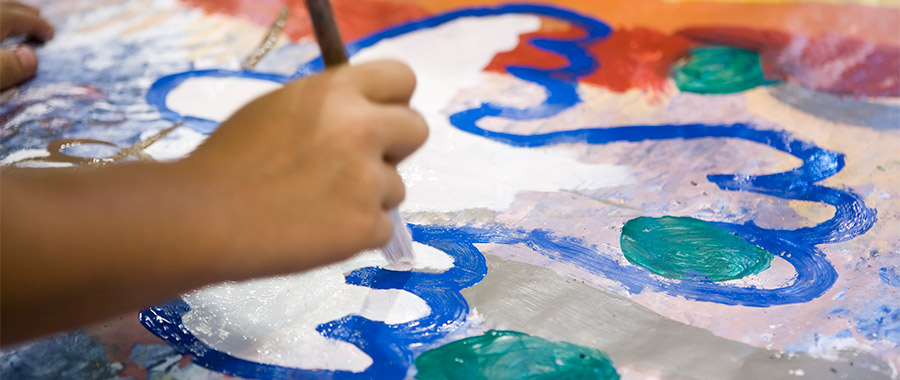In the tapestry of human existence, the notion of war has long been interwoven with the fabric of civilization. Yet, the Bahá’í teachings invite us to transcend these antiquated paradigms, urging a collective re-evaluation of our understanding regarding conflict. The principles promulgated by Bahá’u’lláh inspire individuals to unlearn the dogmas that have perpetuated the science of war. This article elucidates the multifaceted process of unlearning these obsolete constructs and embracing a new paradigm that emphasizes unity, peace, and collaboration.
The first step in this transformative journey is recognizing the entrenched belief systems that fuel conflict. For millennia, humanity has been conditioned to perceive war as an inevitable aspect of societal evolution—an intrinsic solution to divergent interests and ideological disparities. This antiquated viewpoint necessitates deconstruction. The Bahá’í faith posits that the root causes of war are deeply embedded in humanity’s collective psyche: prejudices, materialism, and a misguided sense of superiority. To unlearn the science of war, one must first scrutinize these pervasive beliefs, dismantling the logic that underpins them.
Transitioning from an era of conflict to one of peace also requires a profound shift in perspective. The Bahá’í teachings advocate for global unity, positing that humanity is an integral body wherein the welfare of one is inextricably linked to the welfare of all. This holistic view compels individuals to expand their sense of identity beyond tribal affiliations and national boundaries. By cultivating an expansive worldview that embraces diversity while fostering a spirit of collaboration, individuals can cultivate empathy, thereby enabling an innate aversion to war.
Moreover, the process of unlearning the science of war encompasses educational reform—a paradigm shift in how conflict is perceived and addressed. Traditional educational systems often glorify martial achievements while diminishing the importance of diplomacy and negotiation. The Bahá’í model emphasizes the necessity for curricula that prioritize peace-building, conflict resolution, and intercultural communication. By embedding these principles into educational frameworks, the next generation can be equipped with the tools necessary to approach disagreements through dialogue rather than destruction.
Enhancing communication skills within communities is also paramount. The Bahá’í teachings underscore the importance of fostering open dialogues, where individuals feel safe to express their thoughts, grievances, and aspirations. This environment of trust not only mitigates misunderstandings but also fortifies social cohesion. To unlearn the science of war effectively, communities must actively engage in practices that promote transparency and accountability among their members, thereby cultivating a shared commitment to peace.
Additionally, one must confront the societal glorification of conflict. Many cultures lionize war heroes and militaristic triumphs, creating an ethos that venerates aggression as a catalyst for progress. In contrast, the Bahá’í faith advocates for the recognition of peacemakers, visionaries, and those who embody the principles of compassion and understanding. By restructuring societal narratives to celebrate non-violent conflict resolution, individuals can internalize these values, further disengaging from war’s allure.
Importantly, self-reflection plays a pivotal role in the unlearning process. Individuals are urged to engage in introspective practices that enable the examination of their own biases and assumptions. Meditation, thoughtful dialogue, and critical inquiry can yield profound insights into personal belief systems that may inadvertently support the perpetuation of conflict. Acknowledging one’s part in the larger machinery of war—be it through passive acceptance or active participation—serves as a catalyst for transformative change.
The principles of abdication and altruism are paramount in this journey. The Bahá’í teachings implore adherents to relinquish not only personal grievances but also collective animosities. This notion of collective forgiveness expands the trajectory towards peace, enabling communities to heal and evolve beyond the adversities of the past. Altruism underscores the importance of unity and cooperation, urging individuals to prioritize communal welfare over individual gains. Such values are instrumental in dismantling the remnants of the war-oriented mentality that have haunted humanity for generations.
Revolutionizing our approach to governance is another facet worthy of exploration. Current political constructs often hinge on competition and power struggles, reinforcing the notion that war is an acceptable means to an end. The Bahá’í vision, however, advocates for a system characterized by justice, equity, and collective decision-making. Emphasizing collective interests over partisan views can pave the way for greater understanding, reducing the likelihood of conflict in moments of tension.
Moreover, fostering international cooperation is of utmost importance in unlearning the science of war. The Bahá’í teachings call for unity among nations, transcending self-serving interests to address global challenges collaboratively. The establishment of institutions that prioritize diplomacy, humanitarian efforts, and mutual respect can serve to harmonize international relations. By interweaving these values into the fabric of society, the global community can collectively evolve beyond the archaic notions of warfare.
In conclusion, unlearning the science of war is an intricate process requiring introspection, education, and the reformation of societal values. The teachings of the Bahá’í faith offer a rich tapestry of insights that encourage individuals to transcend outdated paradigms. By embracing unity, fostering open dialogue, and prioritizing the well-being of the collective, humanity holds the potential to sculpt a future characterized by peace and understanding. The journey beyond old ways is not merely a lofty ideal; it is a pressing necessity that calls for immediate and concerted action. As the world continues to grapple with the legacy of conflict, the essence of these teachings serves as a beacon of hope—a reminder that peace is not only possible but imperative for the flourishing of humanity.
